




| Large Bee Fly (Bombylius major (Linnaeus, 1758)) |





|
|
Scientific name: Bombylius major (Linnaeus, 1758) Common name: Large Bee Fly French name: Grand Bombyle Order: Diptera Family: Bombyliidae Wingspan : Body size: 14 to 18 mm; Wingspan: 24 mm. Biotope: Woodland edges, parks and gardens. Geographic area: Europe, North Africa and southern Asia. Observation period : March to June. |
The Large Bee Flies are furry diptera resembling Bumblebees or Bees. They differ by their long hairy legs hanging down during flight. It shows a dark area on the front part of the wings. This dark area slightly widens before the apex of the wing. The dark band just before is rather wide and extends completely over vein R1. The Large Bee Fly has a long, rigid proboscis held out in front of the head. It is used to feed, in flight, on the nectar of many flower species and in particular Primrose flowers. The Large Bee Fly lays its eggs near the entrance of the underground nest of solitary bees or solitary wasps. The Large Bee Fly larvae live as parasites inside the nests, feeding on stored food and on growing Bee or Wasp larvae. Bombylius fimbriatus also shows a dark area on the front part of the wings, however the apical extension is thinner and curved. It does not completely covers vein R1. Bombyliidae of the Systoechus genus have the two basal cells of the same length. The basal cell which is closer to the costal edge is longer on Bombyliidae of the Bombylius genus. |
| [To know more about the Large Bee Fly] [Next picture] [Top] |
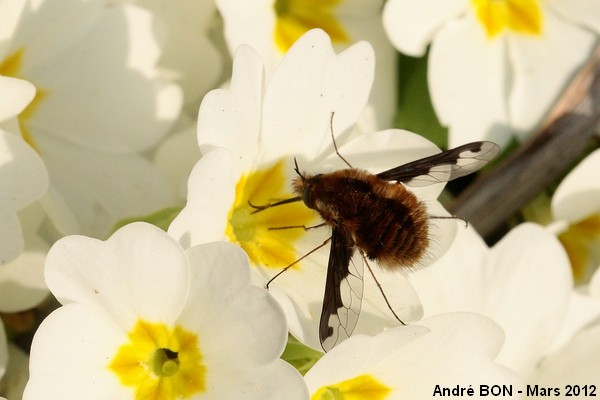
|
Large Bee Flies are observed rather early in the season, starting from March. |
| [To know more about the Large Bee Fly] [Next picture] [Previous picture] [Top] |
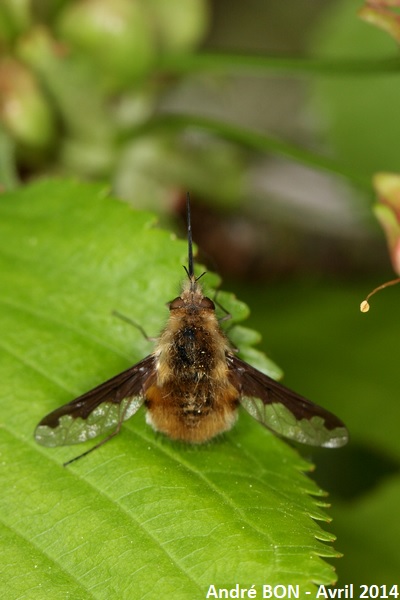
|
Here is an upper side view on which you can see the shape of the dark band close to the apex of wing. |
| [To know more about the Large Bee Fly] [Next picture] [Previous picture] [Top] |
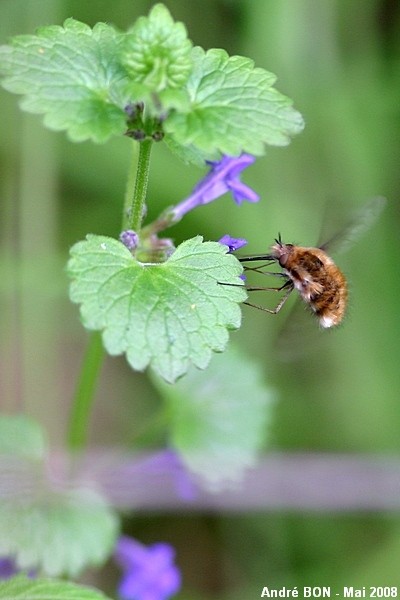
|
Here is the typical behaviour of the large Bee Fly feeding on nectar in flight. |
| [To know more about the Large Bee Fly] [Next picture] [Previous picture] [Top] |
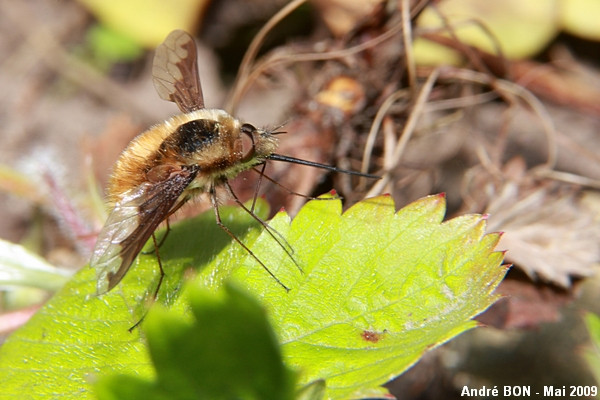
|
This times, the depth of field is too important. I should have used a larger aperture so that the Large Bee Fly would have been on a uniform blurred background. |
| [To know more about the Large Bee Fly] [Previous picture] [Top] |
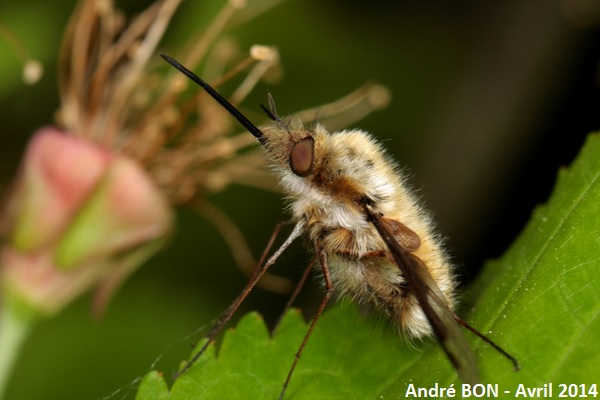
|
I am making progress but I got too close and one leg is cut at the bottom of the picture :-( |